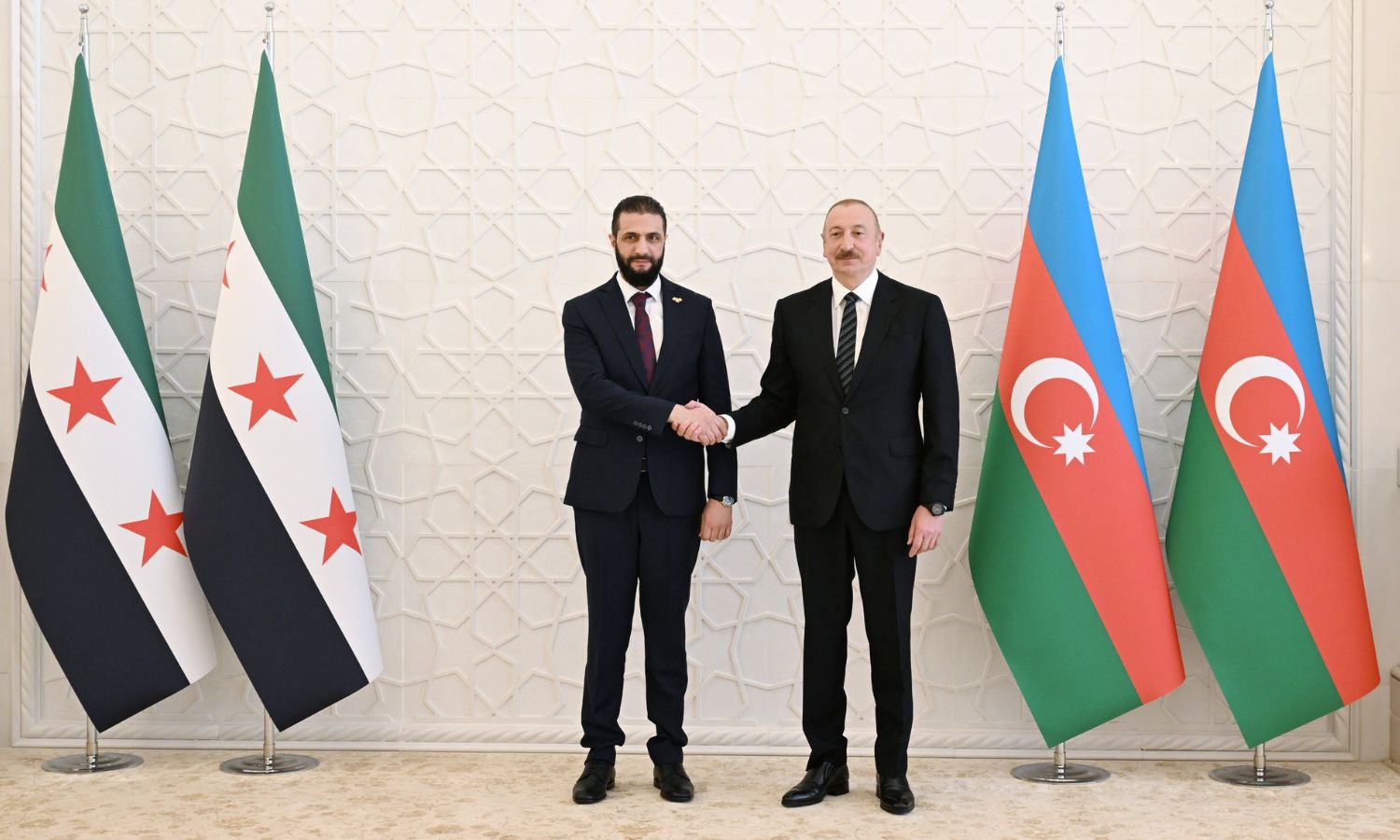Syria’s Interim President Ahmad al-Sharaa wrapped up a one-day state visit to Azerbaijan on Saturday, his first foreign trip since assuming office in January after the collapse of Bashar al-Assad’s regime. The lightning tour, centered on energy cooperation and post-war reconstruction, signals Damascus’s intent to recast its regional profile and marks a notable warming of ties between the two Caspian states.
Natural-Gas Lifeline Sealed
The visit’s keystone was the signing of a natural-gas framework accord with Azerbaijan’s state energy giant SOCAR. Under the agreement, SOCAR will begin exporting Azerbaijani gas to Syria via existing Turkish pipelines “shortly,” according to a joint communiqué. The volumes were not disclosed, but officials in Baku said initial deliveries are expected before winter, offering Syria a badly needed alternative to patchy Iranian and Russian supplies that have left large swaths of the country with only a few hours of electricity a day.
“Today we laid the foundations for Syria’s energy security,” President Ilham Aliyev declared during a press appearance at the seaside Zogolba Palace. Al-Sharaa hailed the pact as “a first brick in rebuilding our shattered grid,” adding that Azerbaijan would also dispatch technical teams to help rehabilitate damaged power stations around Homs and Aleppo.
Broader Reconstruction Portfolio
Beyond hydrocarbons, the two leaders sketched out a roadmap for wider economic cooperation encompassing industry, health, and education. Baku pledged expertise in pipeline construction and hospital refurbishment, while Damascus offered potential stakes for Azerbaijani firms in phosphate mining and port logistics once security conditions stabilize.
Analysts note that Azerbaijan, fresh from completing the €4 billion TANAP expansion, is eager to showcase its know-how in post-conflict settings. “Azerbaijan is positioning itself as both an energy hub and a reconstruction partner,” said Aisha Karimli, a regional economist at the Caucasus Policy Center. “Syria provides a high-profile test case.”
Quiet Diplomacy on the Sidelines
Adding intrigue to the trip, diplomatic sources confirmed that Syrian and Israeli officials held an unpublicized meeting in Baku to discuss the presence of Israeli troops in Syria’s southwest. Al-Sharaa did not attend, but Azerbaijani mediators reportedly facilitated the encounter, reflecting Baku’s growing role as a neutral venue for sensitive Middle-East talks. Neither Jerusalem nor Damascus has commented publicly on the meeting.
Symbolism and Ceremony
Al-Sharaa was greeted with a red-carpet ceremony that included a 21-gun salute and an honor guard clad in traditional Azerbaijani dress, underscoring the importance Aliyev places on rebooting ties severed during Syria’s civil war. The Syrian leader departed late Saturday night from Heydar Aliyev International Airport, escorted by Azerbaijan’s deputy foreign minister and a military band—gestures rarely extended to visitors on such brief visits.
Regional Ripple Effects
Observers say the trip delivers tangible gains for both capitals: Damascus secures a new energy lifeline and an eager investor in reconstruction, while Baku burnishes its diplomatic credentials and opens a potentially lucrative export market. The rapprochement may also reshape regional dynamics, lining Syria up alongside Turkey and Azerbaijan in an emerging energy corridor that stretches from the Caspian Sea to the Eastern Mediterranean.
Whether the momentum survives Syria’s fraught political transition remains to be seen. Still, Saturday’s events suggest that, for the first time in years, Damascus is again seated at the regional negotiating table—this time with natural gas as its calling card.
Photo: Enab Baladi
